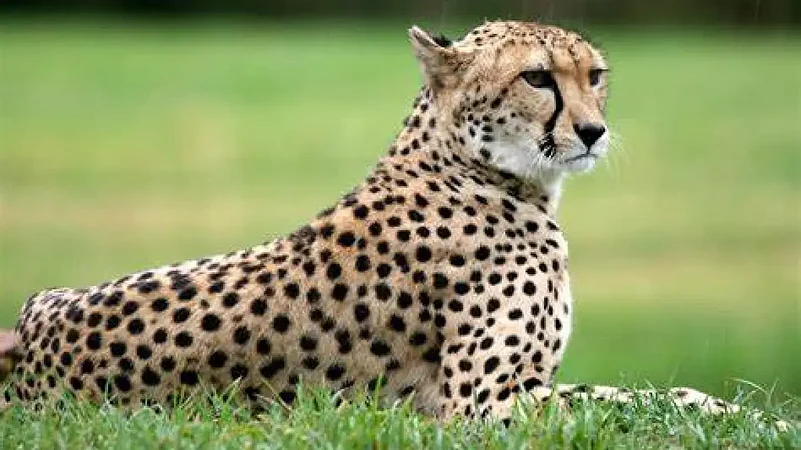As Kuno National Park in Madhya Pradesh waits to welcome 12 more cheetahs on Saturday, which will take the count of the big cats at the protected forest to 20, a study says the carnivores are “highly unlikely” to pose a threat to the people living in the vicinity.
The cheetahs, including five females, are being brought from South Africa, five months after the first batch of eight spotted felines from Namibia were released into a quarantine enclosure at KNP under India’s ambitious Cheetah reintroduction programme.
“There exist no records of wild-born metapopulation attacking humans... All (12) founder cheetahs sourced for reintroduction (in India) are wild born. The prospect of any of these cheetahs attacking humans can be considered highly unlikely,” says the risk management plan of the project authored by South African cheetah metapopulation manager Vincent van der Merwe.
Advertisement
The findings could assuage concerns over potential man-animal conflicts among locals. The buffer zone of KNP, where humans and cattle live, is spread over an area of 48,700 hectares, says the plan prepared by Merwe.
“All KNP officers will be trained by Vincent (Merwe) on how to approach wild cheetahs on foot during the quarantine period,” it adds. The second batch of cheetahs is set to arrive at the Gwalior Air Force base in MP on Saturday morning and 30 minutes later they will be transported some 165km away to KNP in Sheopur district by IAF helicopters.
After landing at KNP around 12 noon, they will be put into quarantine bomas (enclosures) after half an hour (12.30 pm), an expert had said. KNP Director Uttam Sharma said they have set up 10 quarantine bomas for the South African cheetahs. In two of these facilities, two pairs of cheetahs would be kept.
Advertisement
“We have completed our preparations to receive the big cats on Saturday,” he had said. Experts said a delegation from South Africa visited KNP in early September last year to see arrangements at the wildlife sanctuary for housing the world’s fastest land animals.
A Memorandum of Understanding (MoU) was signed between India and South Africa last month for the translocation of the mammals. India had planned to airlift these SA cheetahs in August last year but couldn’t do so due to the delay in signing a formal translocation agreement between the two countries.
Due to the delay in the MoU signing, some experts had in December expressed concern over the health of the South African cheetahs as these animals had been quarantined in their home country since July 15 in anticipation of their transfer to India.
These fastest land animals from Namibia – five females and three males – are currently in hunting enclosures at the park before their full release into the wild. As per Indian wildlife laws, a month-long quarantine is mandatory before importing animals and they are required to be kept in isolation for another 30 days after arrival in the country.
Experts said the spotted animals’ metapopulation (cheetah count in small and medium parks) in South Africa has risen to 504 from 217 in 2011. The last cheetah died in India in Koriya district of present-day Chhattisgarh in 1947 and the species was declared extinct in 1952.
Advertisement
Former Union environment Minister Jairam Ramesh had initiated 'Project Cheetah' in 2009 under the United Progressive Alliance (UPA) government with an aim to reintroduce the wild cats in India.




















